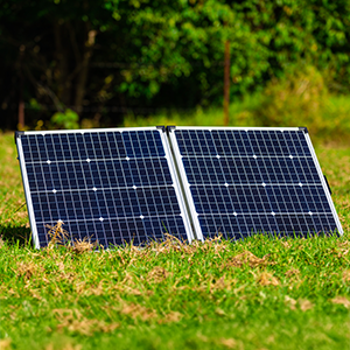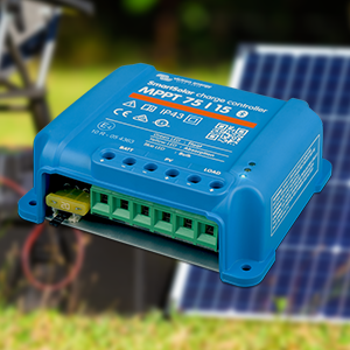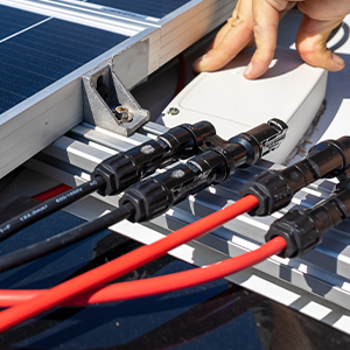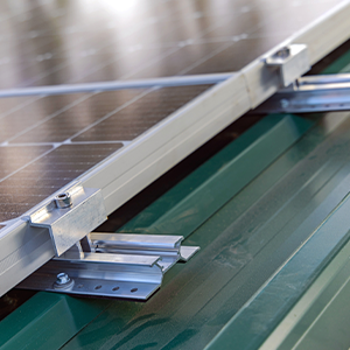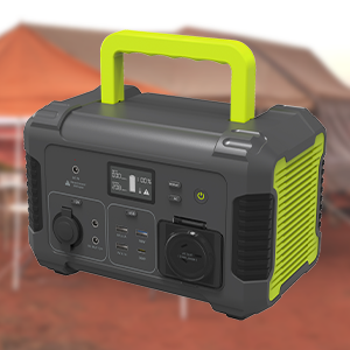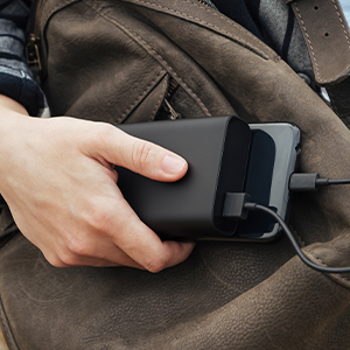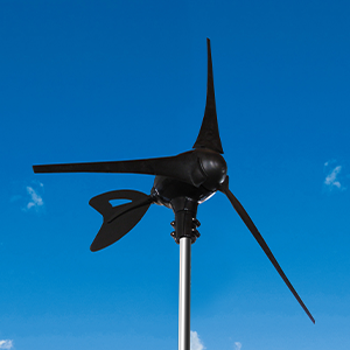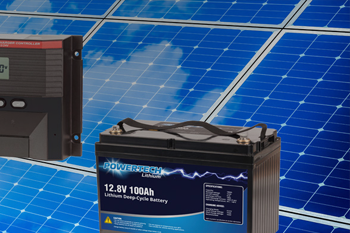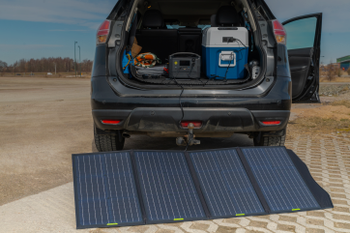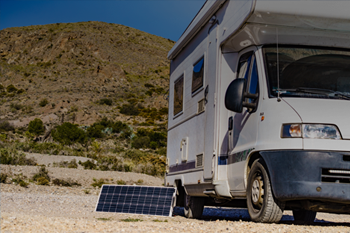
Solar Power
As the world continues to shift towards sustainable solutions, Jaycar is proud to offer you a diverse selection of cutting-edge solar-power products that reduce your carbon footprint and also empower you to embrace a greener, cleaner future.
Get excited about our wide range of solar panels, solar charge controllers/regulators, recreation kits, connectors, and solar mounting hardware. We offer various options, including fixed, flexible, folding, and fabric panels, along with brackets suitable for cars, caravans, campers, and cribs. We provide both ready-made and DIY options for wiring and connecting it all together.
Whether you are an eco-conscious individual, a tech enthusiast, or someone looking to save on electricity bills, we have all the products you need to set up your solar power solution.
What Is Solar Power?
Solar power converts sunlight into electricity through photovoltaics (PV) or concentrated solar power systems. This renewable energy source is crucial in diminishing fossil fuel dependency, reducing energy expenditures, and enhancing environmental health. Solar installations range from small rooftop setups in residential areas to extensive solar farms that generate power for entire communities. With continual technological advancements, solar systems are becoming increasingly efficient and suitable for diverse climates and regions. Our range of solar products guarantees a fit for every customer's energy needs.
How Does Solar Power Work?
Solar power systems capture sunlight with photovoltaic cells, generating direct current (DC) electricity. Inverters then convert this DC into alternating current (AC), the type of electricity used in most homes and businesses. This conversion allows the energy to be used immediately, stored in batteries for later use, or fed back into the power grid. Advanced materials and engineering enhance the efficiency of these processes, maximising the energy yield from each panel. Solar technology supports sustainable energy and provides a reliable and low-maintenance power solution for decades.
Solar Power Advantages and Disadvantages
Solar power offers numerous benefits including:
- Significant reductions in electricity bills
- Minimal environmental impact
- The provision of a reliable power source in remote locations.
- Solar installations can increase property values
- Provide energy independence from the traditional power grid.
The disadvantages of solar power can include:
- Initial setup costs can be high
- The efficiency of solar panels can be affected by weather conditions and geographic location.
- Solar energy production directly depends on sunlight, requiring additional solutions like batteries or alternative power sources for night-time or cloudy days.
However, despite these challenges, the long-term benefits of investing in solar technology are compelling. Dive into our extensive selection of solar panels to discover the ideal option for fulfilling your energy requirements.
What Are the Types of Solar Panels?
Several types of solar power systems cater to different needs and environments. Fixed solar panels are ideal for permanent installations where maximum exposure to sunlight is achievable. Folding solar panels offer the flexibility needed for those who enjoy camping and travelling, allowing easy storage and transport. Fabric solar panels are the latest innovation, combining lightweight materials with high efficiency, perfect for unconventional or temporary setups. Each type serves a unique purpose, ensuring that regardless of your lifestyle, there's a solar solution that fits.
What Is Solar Power Used for?
Solar power is perfect for those who love camping and exploring the outdoors. Portable solar panels and chargers can keep your devices powered up, from phones to GPS systems, while you're off the grid. It’s an eco-friendly way to run essential gear like camping lights, fans, and portable fridges without relying on traditional power sources. Solar energy also helps charge batteries for longer trips, ensuring you have a reliable energy supply wherever your adventure takes you. For campers, solar power is a practical and sustainable solution for staying connected and comfortable in nature.
Shop Solar Panels & Accessories
A panel is just the first step on your solar powered journey. When it comes to everything else you need for your solar power set up - from charge controllers to mounting solutions and even the cables to hook it all up - Jaycar has you covered.
Solar Power Frequently Asked Questions
How much solar power do I need?
Determining the amount of solar power required depends on your energy consumption patterns and the efficiency of the appliances in use. A detailed assessment of monthly electricity usage will help establish a baseline. From there, considering the average sunlight exposure your location receives will guide the size of the solar system needed. Our experts can help tailor a solar solution that meets your energy needs efficiently and sustainably.
How much do solar panels cost?
The cost of solar panels has decreased significantly over the past decade, making solar installations more accessible to a broader audience. Prices vary based on the type of panel, the size of the system, and additional components like inverters and batteries. Government incentives and rebates can also reduce the upfront costs of going solar. Investing in solar technology cuts ongoing energy costs and contributes to a sustainable future.
How is solar power made?
Solar power is generated by converting light from the sun into electricity using photovoltaic cells. These cells are made from materials that exhibit the photovoltaic effect, which occurs when sunlight knocks electrons loose from atoms, generating electricity. This process is entirely clean, producing no emissions or pollutants. Solar power systems can be scaled to meet any energy demand, from small residential setups to large-scale solar farms.
How do I choose the right solar power system?
Selecting the right solar power system involves evaluating your current and anticipated energy needs, understanding the solar potential of your location, and considering your budget. Choosing high-quality panels and components is crucial to ensure longevity and performance. Consulting with solar professionals can provide insights into the best products and configurations for your specific circumstances. Our extensive range of solar power solutions and expert advice ensures every customer finds their ideal setup.
Who invented solar power?
The development of solar power technology dates back to the 19th century when scientists first discovered that light could generate an electric charge in certain materials. The first practical photovoltaic cell was developed in 1954 by researchers at Bell Laboratories in the United States. Since then, advancements in materials science and engineering have greatly increased the efficiency and reduced the cost of solar panels. This ongoing innovation continues to drive the expansion of solar energy worldwide.
How is solar power sustainable?
Solar power is one of the most sustainable forms of energy, as it generates electricity without depleting natural resources or producing greenhouse gas emissions. The sun provides a limitless supply of energy that can be harnessed without harm to the environment. Furthermore, solar power systems have a long lifespan, require minimal maintenance, and can be recycled at the end of their service life. By converting to solar energy, households and businesses can significantly reduce their carbon footprint and contribute to a healthier planet.
What does a solar power inverter do?
A solar power inverter is a critical component in a solar system, converting the DC electricity generated by solar panels into AC electricity that can be used in your home or fed into the grid. This device ensures that the power produced is compatible with the electrical systems used in most residential and commercial applications. Inverters also play a crucial role in optimizing the efficiency of the solar power system by monitoring and adjusting the voltage to maximize energy production. Our range of solar inverters includes various models to suit different system sizes and requirements.
Alternatives to Solar Power
For power on the go check out our power stations to keep that fridge running or a powerbank to top up your phone. Charge them with your home set up and have instant access to power on your trips. Our power generation range also includes solutions for wind power and petrol generators for all your off grid needs.
Learn More About Solar Power
Have more questions? Read our solar power guides to become a solar expert!


